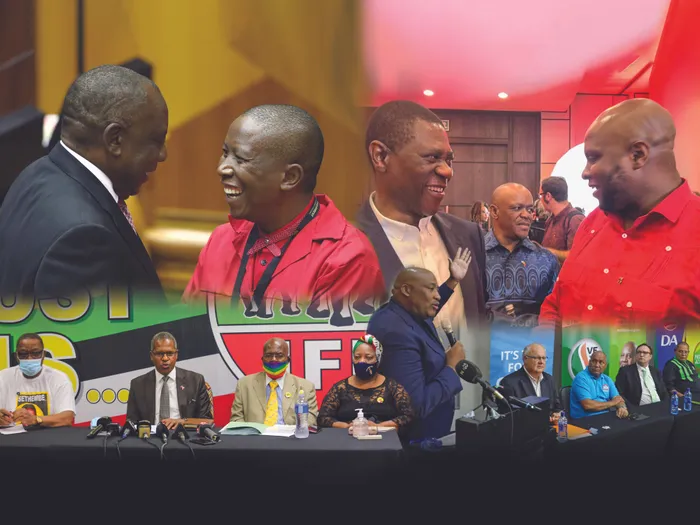South Africa: Immature coalitions subvert democracy

Graphic: Timothy Alexander / Africa News Agency (ANA)
By Bheki Mngomezulu
THE decision by South African politicians to visit countries like Denmark to learn about coalition governments was a wise move. It is not an exaggeration to say that South Africa’s experiment with coalition governments has failed dismally.
Part of the reason is that some politicians do not understand how this form of government works.
Unlike in countries such as Australia, India and Germany, as well as Scandi-navian countries, African countries in general and South Africans in particular have a long way to go in terms of getting to grips with coalition politics.
Nelson Mandela Bay Municipality is a living example of how coalition politics have failed. This municipality has seen the mayoral position changing hands at short intervals. The ANC, DA,
UDM and other political parties have all tasted power in the municipality.
In Gauteng, the same situation has been replicated. Since the 2021 local government elections, the Johannesburg Metro has been led by Dr Mpho Phalatse, of the DA, who was ousted by Dada Morero, of the ANC.
In no time, Phalatse was reinstated following a court victory by the DA.
However, her return was short-lived.
Recently, she was voted out and replaced by Thapelo Amad from Al-Jamah, a member of another coalition.
The EFF has added more confusion to South Africa’s coalition nightmare.
Before the 2021 local government elections, the EFF stated that it would never work with the ANC. Some of the party leaders were not even shy to say that they would rather vote for a ghost than take their vote to the ANC, which they accused of corruption and theft.
Living up to its promise, the EFF worked with the IFP and even had eight of its councillors being appointed as deputy mayors in IFP-led municipalities in KwaZulu-Natal.
A few days ago, the leader of the EFF, Julius Malema, announced that his party had decided to cut ties with the IFP. He then instructed all eight councillors, who were the deputy mayors, to resign with immediate effect. This shocked the IFP, especially because no solid reason for the decision was immediately given.
The only insinuation was that the EFF believed that the IFP had not renounced its old tendencies of colluding with the apartheid regime. This was not clear since apartheid ceased to exist in 1994.
It surfaced afterwards that the EFF had wanted to lead Umhlathuze Municipality, which is one of KZN’s four economic hubs – the other three being Msunduzi, eThekwini and Newcastle.
Neither the EFF nor the IFP leadership was able to explain if that had been part of the negotiations before an agreement was reached and whether the IFP had reneged on its promise.
The fallout between the two parties has forced the IFP to engage in political manoeuvring in order to retain its control in the affected municipalities.
In the case of the municipality, the reconfiguration of the IFP’s politics happened at the expense of the National Freedom Party. One of the NFP councillors decided to vote with the IFP, not the ANC, as mandated by his party.
All this points to the fact that coalitions in South Africa are not stable.
One minute, the coalition is led by a mayor from a particular political party, and the next, the mayor is ousted and a new one is elected from another political party.
While the changes suit politicians and satisfy their political egos, they do not benefit the electorate. Service delivery is negatively affected in many ways.
First, some political parties disagree, to the extent that municipal budgets are not passed.
Second, in other instances, even after the budget has been passed, municipal programmes are not implemented as politicians fight one another over the Integrated Development Planning.
Third, and most importantly, each time a mayor is removed from office, the new one appoints a new mayoral committee. The new incumbents have to first learn what their responsibilities are. In the process, municipal projects are delayed.
Once the changes have happened, the blame game ensues. The outgoing mayor claims that things were better during their time. The new one blames their predecessor for having laid a weak foundation. Neither of the claims benefit the electorate. Given the trend of how political parties have been performing in each election recently, it is almost a foregone conclusion that in 2024, the prospect of not having an outright winner are high.
Should that happen, the national government and some provincial governments could be led by coalition governments. If what we have seen thus far is anything to go by, this could be a recipe for disaster.
Therefore it is important for South African politicians and the electorate to learn about how coalition politics work. Failure to do so could plunge the country into chaos next year.
Bheki Mngomezulu is Professor of Political Science and Deputy Dean of Research at the University of the Western Cape.